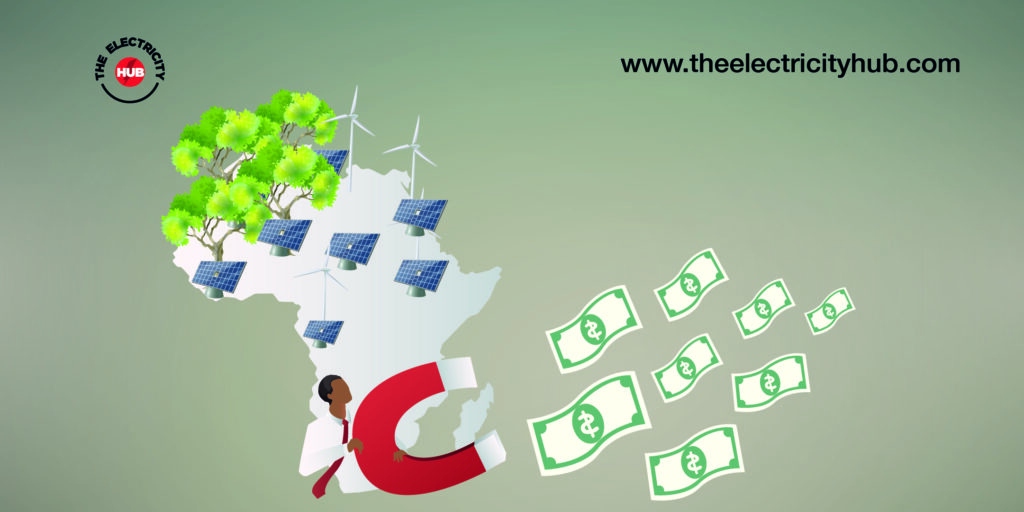
Despite having one-fifth of the world’s population, Africa currently accounts for only 3% of global energy investment. African countries must double their energy investment to over USD 200 billion annually by 2030 to achieve all their climate goals, including universal access to modern energy. However, the cost of capital for energy projects in African countries is at least 2-3 times higher than in advanced countries like China, which hinders investment by raising project costs.
Limited access to capital is a pervasive hurdle inhibiting the development of clean energy projects in Africa. Consequently, the scarcity of financial resources is primarily caused by weak economic sectors, limited local institutional capacities, and a lack of creditworthy customers. These factors make it challenging for project developers to secure the necessary upfront capital investments. As a result, the implementation of clean energy projects has become a formidable task in Africa.
Moreover, political instability, inconsistent policies, and bureaucratic red tape further complicate financing clean energy projects in Africa. Consequently, this uncertainty makes private sector entities reluctant to finance renewable energy projects. Investors seek stability and reliable long-term policies to ensure a secure investment return. Therefore, more consistent regulatory frameworks are needed to ensure the flow of funds into the clean energy sector.
In addition, the underdeveloped infrastructure, particularly in rural areas, presents another significant challenge to scaling up clean energy projects in Africa. Consequently, this lack of infrastructure makes it challenging to connect power generated from clean energy projects to consumers effectively. Without a reliable grid infrastructure, clean energy sources cannot reach the intended consumers, thus hindering the expansion of clean energy initiatives.
Opportunities in Financing Clean Energy Projects in Africa
- The abundance of Renewable Energy Sources: Africa possesses immense renewable energy potential, including solar, wind, hydro, and geothermal resources. Solar energy, for example, is abundant throughout the continent, providing a tremendous opportunity to exploit this resource efficiently and cost-effectively.
- Rising Demand and Growing Population: Africa’s energy demand is projected to double by 2040, driven by population growth, urbanisation, and industrialisation. This increasing demand is a significant opportunity for clean energy investments, as renewable energy sources can be utilised quickly and efficiently to meet the rising energy needs of the continent.
- Evolving Regulatory Environment: African governments increasingly recognise the importance of clean energy and are implementing policies and regulatory frameworks to support its growth. This includes establishing renewable energy targets, introducing supportive legislation, and implementing incentive mechanisms to encourage private sector participation.
Strategies and Potential Solutions
The International Energy Agency and the African Development Bank Group collaborated to create a new report titled “Financing Clean Energy in Africa”. The report outlines innovative investment solutions across the continent critical to scaling up energy investment.
The report covers various topics, including technologies, financing providers, and local institutions. It examines which types of capital are most suitable for the specific features of each sector or technology. Private investment was one of the focuses of the analysis, including the role of de-risking support from development finance institutions (DFIs) and other donors. An estimated concessional capital of USD 28 billion will be necessary by 2030 to raise the required capital of USD 90 billion in private investment in clean energy. The report also emphasises the importance of innovative financing mechanisms, such as green bonds, which can help raise private funds for clean energy projects. The report further highlights the importance of regulatory frameworks supporting clean energy investment. Finally, the report emphasises the importance of building local capacity to support clean energy investment. This includes developing local financial institutions to finance clean energy projects and producing local expertise in clean energy technologies.
In conclusion, financing clean energy projects in Africa presents both challenges and opportunities. While limited access to capital, political risks, and underdeveloped infrastructure pose significant barriers, Africa also boasts an abundance of renewable energy sources, a growing population, and a shifting regulatory environment. By implementing appropriate strategies and solutions, including mobilising domestic capital, fostering public-private partnerships, and attracting international investments, Africa can overcome these challenges and unlock the enormous potential for clean energy development. A sustainable and inclusive energy transition in Africa will address the continent’s energy demands and lead to social, economic, and environmental benefits for its people.